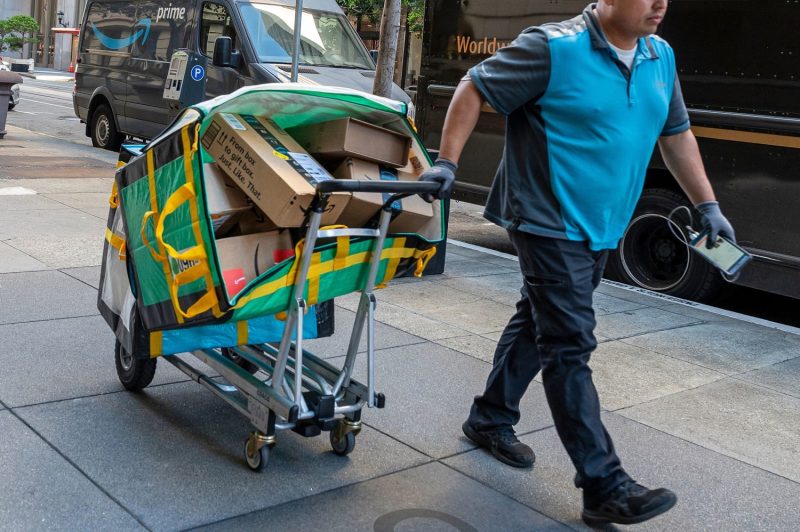Amazon Sued by D.C. AG for Allegedly Excluding Neighborhoods from Prime Delivery
Background of the Case:
The capital city of Washington D.C. is known for its diverse population and neighborhoods. It is home to people from various walks of life, each with unique needs and demands. In the recent turn of events, Amazon, the retail giant, has come under fire for allegedly excluding certain neighborhoods from its Prime delivery services. This issue raises important questions about accessibility, equity, and corporate responsibility.
The Allegations Against Amazon:
The Attorney General of D.C. has filed a lawsuit against Amazon, accusing the company of discrimination and unfair business practices. The lawsuit claims that Amazon has intentionally chosen not to offer Prime delivery services to certain neighborhoods in the city, effectively depriving residents of those areas from the benefits and convenience of fast and reliable deliveries. This move is viewed as discriminatory and a violation of consumer rights.
Impact on the Community:
The exclusion of certain neighborhoods from Prime delivery has far-reaching consequences for the affected residents. It creates a digital divide, where some communities are left behind in terms of access to essential services. In a world where convenience and speed are key factors in consumer decision-making, being excluded from Prime delivery puts these neighborhoods at a significant disadvantage. This can exacerbate existing disparities and inequalities within the city.
Legal and Ethical Implications:
The lawsuit filed against Amazon raises important legal and ethical questions regarding the responsibilities of corporations towards the communities they serve. Companies like Amazon hold significant power and influence in shaping the way we shop and interact with the world. With this power comes the responsibility to ensure fair and equal treatment for all consumers, regardless of their geographical location or socioeconomic status. The allegations against Amazon highlight the need for greater transparency and accountability in how companies design and implement their services.
Potential Outcomes and Responses:
As the case unfolds, it will be interesting to see how Amazon responds to the allegations and what measures it takes to address the concerns raised by the Attorney General of D.C. The outcome of this lawsuit could set a precedent for how online retailers approach their delivery services and the importance of ensuring equal access for all customers. It is crucial for Amazon to take this opportunity to reassess its practices and make necessary changes to ensure that all neighborhoods, regardless of their location, are included in its Prime delivery network.
In conclusion, the lawsuit against Amazon for allegedly excluding neighborhoods from Prime delivery shines a spotlight on issues of equity, accessibility, and corporate responsibility. It underscores the need for companies to prioritize fairness and inclusivity in their business practices and provides an opportunity for Amazon to reevaluate its approach to serving diverse communities. Ultimately, this case serves as a reminder that in an increasingly interconnected world, no one should be left behind when it comes to accessing essential services and resources.
